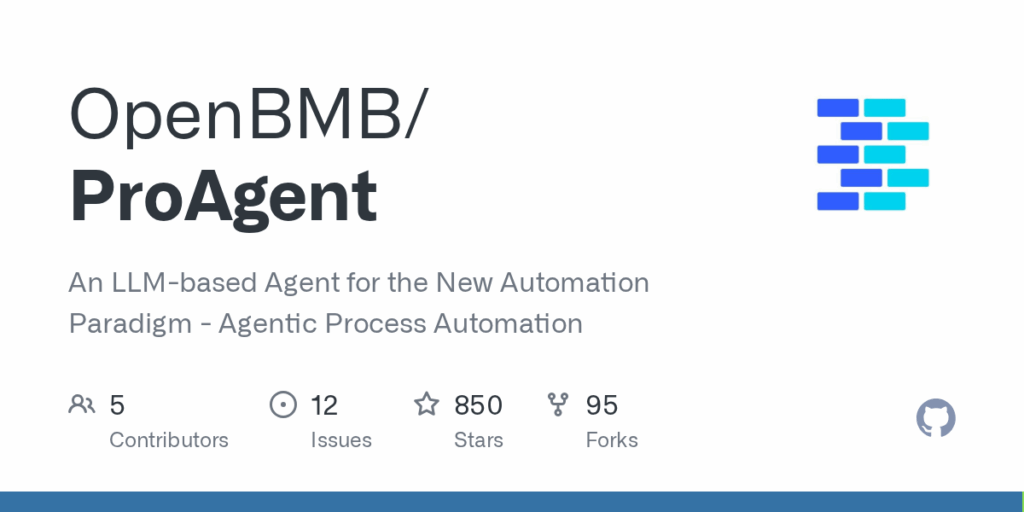ProAgent
Basic Information
This repository provides the official code and materials for the Agentic Process Automation (APA) work and implements ProAgent, an LLM-based system that generates and executes automated workflows from human instructions. It demonstrates how large language model agents can design workflow structures, make dynamic decisions, and coordinate specialized sub-agents to carry out multi-step automation. The README describes setup steps, dependency installation, required OpenAI credentials and the use of GPT4-0613, and integration with a self-hosted n8n instance or reproduced recorded cases. It includes configuration modes (development, refine, production), example cases in ./apa_case, and a record system that saves runs under ./records for later refinement or reproduction. The codebase is intended for researchers and developers exploring agent-driven automation and reproducing the experiments in the associated paper.








